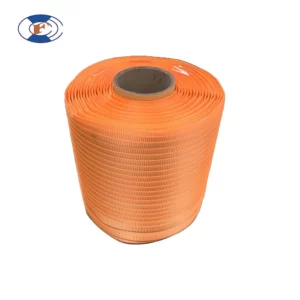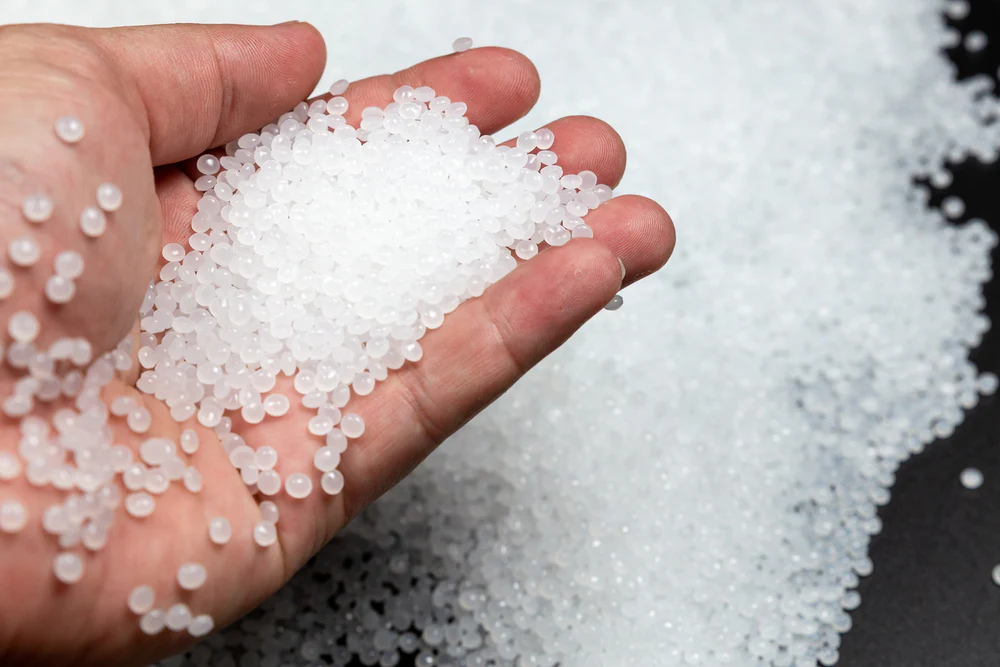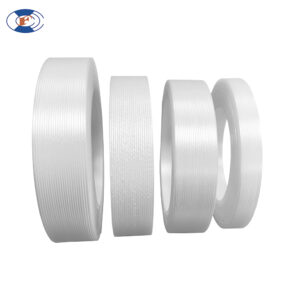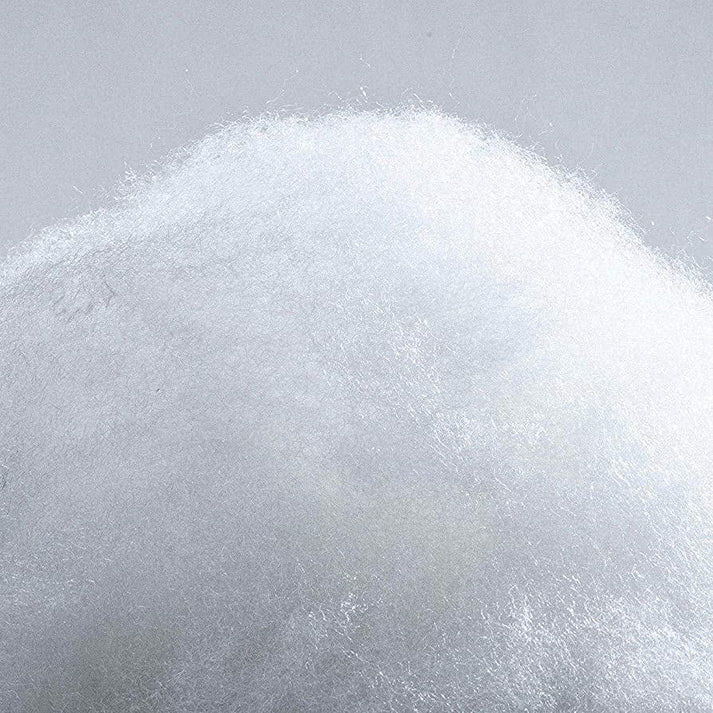Choosing the right strapping material is critical when goods are being transported or stored. Two common choices are polyester and polypropylene strapping. Although they serve similar purposes, there are significant differences between them.
Polypropylene Strapping

Raw Materials: Polypropylene strapping is made from a thermoplastic polymer, polypropylene, which is derived from propylene monomers.

Features: It is lightweight, flexible, and cost-effective, making it ideal for light to medium-duty applications. It offers good elongation and recovery properties, suitable for securing loads that may shift during transportation.
Category: Polypropylene strapping falls under the category of plastic strapping, commonly used in industries such as logistics, warehousing, and agriculture.
Application: It is commonly used for bundling, light-duty palletizing, and securing loads in industries where high tensile strength is not a primary requirement.
Polyester Strapping

Raw Materials: Polyester strapping is made from polyester fibers, which are strong synthetic fibers known for their high tensile strength and durability.

Features: Polyester strapping is known for its exceptional strength, high tension retention, and resistance to elongation, making it suitable for heavy-duty applications. It offers excellent UV resistance and maintains tension over time.
Category: Polyester strapping belongs to the category of synthetic strapping and is widely used in industries such as construction, steel, and heavy machinery.
Application: It is suitable for heavy-duty palletizing, bundling metal products, securing bricks and lumber, and other applications where high tensile strength and minimal elongation are essential.
Which Strapping is Right for You?
Both Polyester and Polypropylene strapping have their advantages and disadvantages. Polyester strapping offers superior strength and tension retention, making it suitable for heavy-duty applications requiring long-term load stability. However, it is more expensive than polypropylene strapping. On the other hand, polypropylene strapping is more cost-effective and flexible, making it suitable for light to medium-duty applications where load stability requirements are lower.
In conclusion, the choice between polyester and polypropylene strapping depends on the specific requirements of your application, including load weight, transportation conditions, and budget constraints.
How to Tell Polyester and Polypropylene Strapping
Polyester strapping is typically thicker and stiffer than polypropylene strapping. It has a smooth surface and may have embossed lines for added grip. Polypropylene strapping is thinner and more flexible, with a semi-glossy finish. Additionally, polyester strapping often has higher tensile strength ratings compared to polypropylene strapping.
Which Strapping Supplier Should You Choose?
When selecting a strapping supplier, reliability and quality are paramount. Qingdao H&F is a professional strapping supplier known for its stable shipment cycles and rigorous quality inspections. Each shipment is thoroughly inspected, and a quality inspection report is provided to ensure the highest standards. With one-to-one customer service, Qingdao H&F is committed to providing the most professional and highest quality service to meet your strapping needs.
Conclusion about Polypropylene Strapping & Polyester Strapping
In summary, both Polyester and Polypropylene strapping offer unique benefits depending on the specific application requirements. Polyester strapping provides superior strength and tension retention for heavy-duty applications, while polypropylene strapping offers cost-effectiveness and flexibility for light to medium-duty applications. Choosing the right strapping material depends on factors such as load weight, transportation conditions, and budget constraints.
FAQ about Polypropylene Strapping & Polyester Strapping
1. Can I reuse Polyester Strapping?
Yes, Polyester strapping can be reused if it is not damaged or worn out. However, it is recommended to inspect the strapping for any signs of wear or damage before reuse.
2. Is Polypropylene Strapping suitable for outdoor use?
Polypropylene strapping is less resistant to UV radiation compared to Polyester strapping. Therefore, it is not recommended for prolonged outdoor use as it may degrade over time.
3. Can I use Polyester Strapping for heavy-duty applications?
Yes, Polyester strapping is suitable for heavy-duty applications due to its high tensile strength and durability.
4. Is Polypropylene Strapping recyclable?
Yes, Polypropylene strapping is recyclable and can be melted down and reused to make new products.
5. Can Polyester Strapping be used with manual tensioning tools?
Yes, Polyester strapping can be used with manual tensioning tools for securing heavy loads.
6. Is Polyester Strapping resistant to chemicals?
Yes, Polyester strapping is resistant to many chemicals, making it suitable for use in various industries.
7. Can I use Polypropylene Strapping for bundling lumber?
Yes, Polypropylene strapping can be used for bundling lumber and other light to medium-duty applications.
8. Is Polyester Strapping more expensive than Polypropylene Strapping?
Yes, Polyester strapping is typically more expensive than Polypropylene strapping due to its higher strength and durability.
9. Can I use Polypropylene Strapping for palletizing heavy machinery?
It is not recommended to use Polypropylene strapping for palletizing heavy machinery due to its lower tensile strength compared to Polyester strapping.
10. Is Polyester Strapping suitable for use in extreme temperatures?
Yes, Polyester strapping is suitable for use in extreme temperatures as it maintains its strength and tension retention properties over a wide temperature range.




